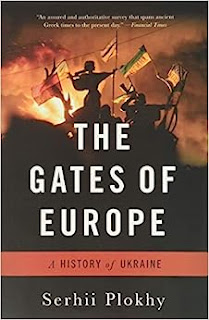from The Gates of Europe: A History of Ukraine by Serhii Plokhy:
After witnessing the pogrom, one of the best-known Jewish authors of the twentieth century, Sholem Aleichem, left the city and the country for faraway New York. Anticipation of a pogrom became a major theme in his last story about Tevye the Dairyman. The subject is also prominent in those of his stories on which the Broadway classic Fiddler on the Roof is based. In both the story and the musical, the city policeman is sympathetic to the Jews. That was true of some policemen, but many stood by during the pogroms, encouraging the violence. That seems to have been the case in Kyiv. By the time the police took action against the perpetrators of the pogrom, it had been going on for two days.
In many ways, the Kyiv pogrom was representative of those that took place in Ukraine’s other big cities. The perpetrators were usually workers—recent migrants to the cities from the impoverished villages of Russia and, to a lesser extent, Ukraine who were competing with Jews for jobs and felt exploited and discriminated against by city and factory officials and entrepreneurs. In the Jews, they found easy prey and a “legitimate” target: by attacking them, the perpetrators could manifest and defend their “true Russian identity” and loyalty to the empire’s principles of autocracy, Orthodoxy, and nationality. Peasants would join in to pillage properties in small towns and on the outskirts of big cities. These criminals felt free to attack properties they would not have touched before.

No comments:
Post a Comment